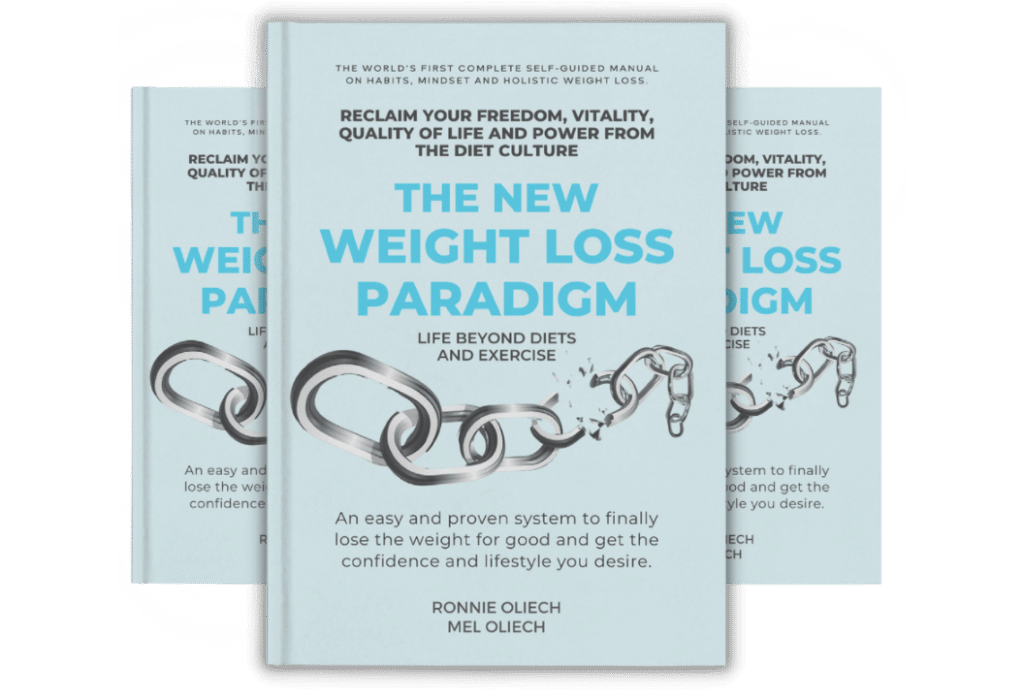There are many problems with diets — the biggest is that they simply don’t work!
One of the reasons they don’t work is that you’re required to follow lots of rules and restrictions.
Don’t eat carbs. Don’t eat sugar. You can’t eat after 7pm. You must do this, etc.
Diet rules and restrictions only creates a cycle of starving and bingeing which sabotages your weight loss and causes you to gain weight instead.
But what if you could set up your life that left behind the strict rules and regulations but gave you more structure about your approach to weight loss?
You can!
The Imani Tribe’s best-kept secret to losing weight is developing boundaries or non-negotiable behaviours that support easy weight loss!
The boundary strategy
Setting up boundaries is a simple way to create more structure in your life, and to provide you with a guide on what you will and won’t do to ensure you’re progressing consistently. Boundaries may also be known as non-negotiable behaviours that you get to choose, rather than having rules forced upon you.
When you set boundaries, you get to choose what works for you and your lifestyle. Once you’ve set them, you have greater clarity about what you will and won’t do in certain situations. Clarity is important when it comes to losing weight because it gives you power, which helps you make rational decisions.
Weight loss is often an emotional journey. However, when you get caught up in your emotions, you usually make silly decisions that end up derailing your weight loss. But having boundaries in place takes away the emotion, and helps you stick to a plan you know will work for you. It’s the difference between making reactive choices (out of emotions) and proactive choices (out of clarity).
Setting boundaries is not the same as setting rules because you get to choose your boundaries according to your goals and your lifestyle. You’re very likely to already have boundaries in place which you may not be aware of. For example, wearing a seatbelt while in the car, and always brushing your teeth before bed are examples of boundaries.
The more you live by your boundaries, the more they will develop into habits — powerful subconscious routines of behaviours that are repeated regularly, which will either support weight loss, or sabotage it.
Wearing a seatbelt or brushing your teeth started out as boundaries, but developed into habits that the majority of people have. How many times do you have to remember to put on your seatbelt or brush your teeth?
You can do the same with loads of situations in your life, that will help you stay on track, without relying on willpower.
Boundaries – the greatest weight loss tip
You can set boundaries in many areas of your life. In fact, setting boundaries for all aspects of your life will mean you’ll be more successful at losing weight, building a business, and raising your family. Here are some examples to get you thinking.
Eating
- I eat vegetables every day
- I include at least 3 different coloured veggies in my meals
- I include protein in most meals
- I allow myself to eat chocolate twice a week
- I eat a minimum of 4 meals a day
- I eat a proper meal instead of snack foods (e.g. yoghurt and berries instead of cake)
- I take a home-made lunch to work every day
- I eat out twice a week
- If I eat out, it’s at a café or restaurant, not a fast-food joint
- I eat breakfast everyday
- I save dessert for the weekends
- I allow myself treat foods twice a week
- I shop for groceries at the same time each week
- I do my weekly meal prep on a Sunday afternoon
- I eat out with friends or family, not in secret at home
- I avoid diet-related behaviours such as counting calories, fasting, using meal replacements, etc.
- I eat different vegetables every week
- I try a new food once a week
- I have a source of Omega-3 in one meal every day
- I choose plant-based carbohydrates over highly-processed carbs
Movement
- I move every day
- If I miss my walk, I make sure I get it done the next day
- I walk for a minimum of 30 minutes
- I train before breakfast
- I stretch before and after each session
- I make sure I warm up properly before each session to avoid injury
- I have my workout clothes ready the night before
- I organise my pre- and post-workout meals in advance
- I see movement as an opportunity, not an inconvenience
- I spend time exercising outside once a week
Sleep
- I get at least 7 hrs of sleep, 5 times a week
- My bedroom is reserved for sleeping and intimacy
- My bedroom is a food-free zone
- My bedroom is an electronic-free zone
- I have a cup of herbal tea before bed to help me relax
- I shower before bed to help me relax
Alcohol
- I save alcohol for the weekends
- I limit myself to 2 drinks when I drink
- I enjoy wine with dinner, rather than drinking it for the sake of it
- I avoid going to places where I am tempted to drink to excess
- I avoid using alcohol to numb my feelings
Stress
- I go for a walk when I’m stressed instead of turning to food or alcohol
- I make time for myself to help reduce stress in my life
- I meditate or deep breathe when I am stressed
Screentime
- I limit TV to 1 hour a night
- I only watch Netflix on the weekends
- I only watch TV if I’ve been for a walk
- I switch off my social media 1 hour before bed
- I have set times during the day where I can check my social media
- I only follow people and pages that align with my values
- I unfollow negative people on my social media feed
- I share something about my weight loss journey on social media at least once a week
- I don’t compare myself to someone else’s social media feed
- I read before I have screen time
People/relationships
- I surround myself with positive people who support me
- I avoid people who are takers
- I avoid people who gossip and judge other people
- I only ask trusted friends or coaches for advice, instead of people who are further behind than me
- I avoid judging other people or their weight loss journeys
- I avoid complaining about others on social media
- I avoid comparing myself with other people
- I spend quality time with my family every week
- I choose to be actively involved in my kids’ lives instead of parenting from the sidelines
- I seek out people who won’t enable my excuses
- I make myself accountable to my coach who I know can help me
Work
- I only work Monday to Friday
- I start work no earlier than 8am and finish no earlier than 6pm
- I only check my emails between 8am and 6pm
- I plan my day to include exercise
- I grow my business by posting on social media at least once a day about my business
- I avoid going to unnecessary networking events
Decision making
- I choose to act instead of procrastinate
- I am proactive instead of reactive
- I choose to put my needs above other people’s
- I make decisions that please me over pleasing other people
- I do something that scares me once a week
- I choose to get out of my comfort zone
- My desk is a food-free zone
- I say ‘yes’ to opportunities that come my way
- I say ‘no’ to things that don’t help me reach my goals
Remember, these are only examples to get you started. The idea is to develop boundaries that work in your life. By all means, use any of the above if you think they’re useful, but don’t feel that you’re locked into them.
The great thing about boundaries is the more you practice them, the more they become a habit and soon, you won’t even have to consciously think about them.
The power of boundaries
Setting boundaries will give you greater clarity around the things you will and won’t do, which will keep you choosing the things that will help you consistently make progress. For example, if one of your boundaries is to get to bed by 9.30pm, it’s easier to say ‘no’ to your friends who want to go out drinking. Not only does this stop you from going out and sabotaging your efforts with alcohol, but it also ensures that you get enough sleep — something that will help your weight loss.
As you make progress towards your goals, it may also be appropriate to tweak or change your boundaries. For example, if you previously drank every day, you might change this to drinking only on the weekend. However, in order to keep progressing, you may need to tweak this to limiting your drinking to the number of drinks you have on the weekend, instead of just limiting your drinking to 2 days.
Having boundaries can keep you on track and stop you falling off the wagon, without the stress of following rules. If you’re constantly veering off track, then you don’t have the right boundaries. Boundaries will also help you stay consistent, and tap into the power of compounded success.
For example, if your coach told you that you had to walk 4 days a week, you may feel like you’re expected to follow a set of regimented rules. This prescriptive approach is likely to create stress, pressure and resistance, which will negatively impact your weight loss, and may reduce the likelihood that you’ll actually walk 4 times a week.
However, if one of your boundaries is that you don’t go more than 2 days without a walk (i.e. you walk at least every second day), then you’ll automatically get those 4 walks in each week, without the pressure and stress of regimented rules. Sticking to your boundary will mean that you’ll consistently walk 4 times a week, every week. Over a year, this compounds to over 200 walks, which will do wonders for your weight loss.
But imagine if you were ‘told’ you ‘must’ go on 200 walks over the year in order to lose weight? It would seem overwhelming, and you’d constantly be ‘working’ at making them happen or missing them because you’d feel so pressured. But when you set boundaries around your walking, you end up doing it, without even realising.
How to set boundaries
When setting boundaries you need to know the biggest thing that causes you to self-sabotage, because setting boundaries around that will give you the biggest bang for your buck. Someone who binges should start with boundaries around food, while someone who doesn’t get enough sleep should start with boundaries around sleep.
For some areas of your life, it might be easy to set boundaries. For example, if you eat chocolate every day, you might realise that setting a boundary to eat it only 3 times a week is helpful. However, there may be other things you need to set boundaries around that you can’t see. These are called blind spots, and they’re one of the reasons why we need a coach.
For example, someone might think they need to set boundaries around food because they engage in emotional eating. However, the reason they emotionally eat is because they give too much of themselves to other people, or invest in toxic relationships. This leaves them feeling drained, so they use food to help them feel full again. Situations like this can be very hard to identify, and unless you’re aware, you won’t be able to work on it.
That’s where we come in. Because we are removed from your situation and not emotionally attached, we can recognise patterns of behaviour, or habits that are holding you back from weight loss. With this level of awareness, we can then develop a personalised plan, which includes advice on where you can set boundaries.
For example, someone may struggle with eating healthy meals during their week, saying they just don’t have time to cook every night. In their mind, this is perfectly legitimate because they run their own business and work long hours. However, we see that they spend their weekends socialising or going out drinking with friends. So we may suggest a boundary along the lines of making time for weekly food prep on weekends before going out with friends.
We can also help you tweak your boundaries if necessary, in order to ensure you continue to make progress towards your weight loss goals. And the beauty is that we can help you with this no matter where you live, through our personalised, online coaching program.


















